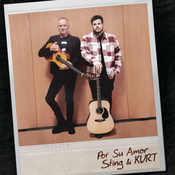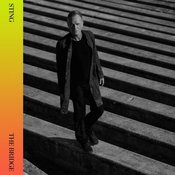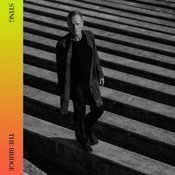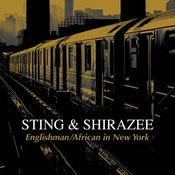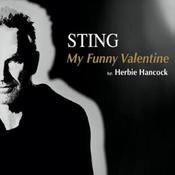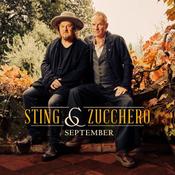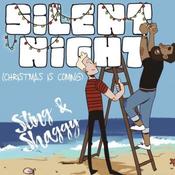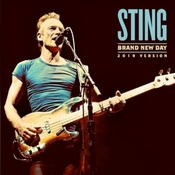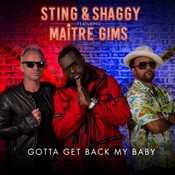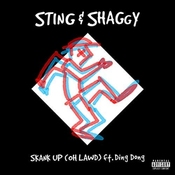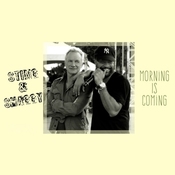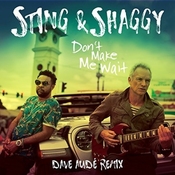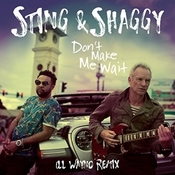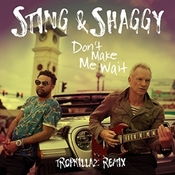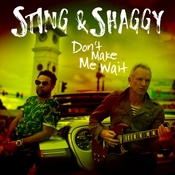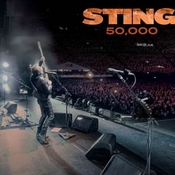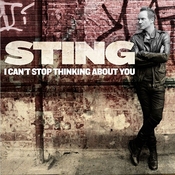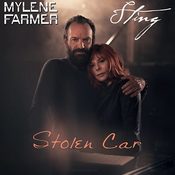They Dance Alone, 12''
Soundbites
Sumner's Tales: Sting talks...
"This was something that I saw when I went to Chile with the Police. The mothers and wives of "the disappeared" do this amazing thing; they pin photographs of their loved ones to their clothes and go out in groups and do this folk dance with invisible partners in front of the police station. It's this incredible gesture of grief and protest. But it's a feminine way of combating oppression. The masculine way is to burn cars or to throw rocks. Yet this feminine way is so much more powerful because what can the police do These women are simply dancing. What I'm trying to say on the record is that the female ultimately is superior to the male. That's what will bring Pinochet down - the mother's sense of injustice."
Timeout, 10/87
"I know that my song last week was banned in Chile, which means that to a certain extent it has been successful. I did send an album to General Pinochet for his birthday, and I'm very upset that he sent it back."
The Los Angeles Times, 12/87
"Its power is that it's ostensibly a peaceful gesture. It's innocent in a way: Security forces can't arrest you for dancing, although I'm sure they'd like to. But this is such a powerful image, of women dancing with pictures of their loved ones pinned on their arms and clothes instead of going out there with Molotov cocktails, which only elicits another kind of violence. This is something that has to win - it's so powerful that it actually has to succeed. Whereas terrorism, no matter how justified by previous violence, will never work."
Spin, 12/87
"There is a certain victory implicit in what those women do, which is so much more powerful than throwing petrol bombs or burning cars - that negative loop. It's not terribly positive to say the end is nigh and is terrible. I don't want to write songs that just confirm that nihilism and gloom, that there is no future. If I write about issues that are sad or horrific, I want there to be light at the end of the tunnel. And there will only be light at the end of the tunnel if we want it. That song reflects that. It is a very sad song, but at the end it is victorious. One day that country I'm singing about will be free. I hope so."
Rolling Stone, 2/88
"The problem Chile suffers at the moment is the same problem Brazil and Argentina have suffered for a long time. As soon as they (the mothers of the disappeared) appeared everyone knew who they were. The stadium erupted. We were filming as well, and as the cameras moved across each face you saw the reality of it. It wasn't a pop concert anymore. It was something very real."
The Chicago Tribune, 2/88
"I reflected on that record being banned in Chile and thought that if I didn't go there I'd be a coward and I'm certainly not a coward. Let's not over-dramatise this. I'm only a singer. I'm not that important. All of us in life have to face a few things, look at something and say this is wrong and be prepared to stand up and say so, regardless of how dangerous it is."
The Advertiser (Australia), 2/91
"I never tackled an issue, social, political or otherwise, unless there was a metaphor in which to dress it up. I was never into writing propaganda or polemic - 'Fragile' is about the rain, 'They Dance Alone' is about people dancing on their own. Okay, it does have a subtext but you don't have to know it. Now, I am of the opinion that when you write about romantic love it is an analogue for the human condition anyway. It's about connecting human beings, it's about optimism for the future, it's a stake in the future."
The Muse, 09/99
"I never tackle political issues head-on. With something like 'They Dance Alone', and the Pinochet regime, the metaphor was of the poor women dancing alone in front of government buildings; you could understand that metaphor whether or not you knew the political issues. I've never set out to write a song that is about, for example, the environment. Songwriting is much more veiled than that. The meaning reveals itself as you go into it. A song should be plastic enough for you to find different meanings there. That's what all art does, all poetry, if you can call it that."
The Times, 12/01
"As a form of protest they dance this thing called the gueca, which is a traditional dance, and they do it alone; and they have the photographs of their loved ones pinned to them. I met some of these people when I toured last year with Amnesty and this image was very strong with me. The form of protest and the blend of grief and dignity they have, can't be bettered. It just seemed a way of magnifying what these women do, in a country like Chile, where democracy is a joke. I'm not going to change the regime in Chile through a song. I don't think the general listens to my records. I don't know. It's not throwing petrol bombs at the police or burning cars. It's something much more profound, you know, I think much deeper."
Boston Globe, 10/87
"I'd been in Chile in the late Seventies with the Police. It was at the height of the Pinochet regime, and there was a bit of a furore about us going there. I asked Amnesty International what they thought and their advice was that I should go, because rock'n'roll means freedom in these countries. So we went out there and it was pretty painful. There were troops and tanks on every street. At the press conference they'd put a little British flag and Chilean flag on the table. I picked up the British flag and threw it in the bin. They said, "What did you do that for" and I said, "In our country that flag is the symbol of the British fascist party." There was uproar. They called us animals. They weren't very nice to us, the right-wing press in Chile. The women in Chile whose husbands and sons had disappeared would dance outside government buildings with invisible partners. I thought it was such a powerful silent protest and an incredible metaphor for loss and suffering that I wrote this song. They banned the record in Chile. But I played the song over there with some of the women it was written about. It was probably one of the most intense performances of my life. I was put in that situation just because of a song. I'm just a singer."
Independent On Sunday, 11/94
"I had been to Chile before and when I did the first Amnesty International Tour, we got to meet people who had actually been freed by Amnesty. You talk to them and hear their life stories and your own life suddenly seems... well, I've never been penalised or persecuted for my political views. I can speak my mind freely. So meeting someone who had actually gone to prison for doing the same thing was quite a shock. I knew I wanted to write about this, but before I could, I needed a metaphor, something that would make the idea universal. Writing a song about specific events is only half artistic. You need a metaphor, and the idea of the Gueca dance is so wonderful. Everyone can relate to a mother or wife or sister or girlfriend dancing with invisible partners, their missing loved ones. It's very moving."
Rock Express, /88
"I've never touched political or environmental matters on my songs, unless I had a metaphor. I wrote a song about Chile due to the metaphor of the Cueca Solo. When I heard that story, I found it a really powerful story. To be honest, without that metaphor, I would never even have played that song, because it is not the kind of song that I like to write. I'm still very interested in those matters, but they do not cross over into my musical life."
(To the Chilean magazine) El Mercuri's Wiken, 1/01
Backgrounder
'They Dance Alone (Cueca Solo)' appears on the 1987 album 'Nothing Like The Sun'. The track, which was about the Cueca, a dance that the "Mothers of the Disappeared" used to do to remember their missing loved ones was banned in Chile and had the ignominy of being the first Sting solo single not to chart in the UK. Despite this it remains one of Sting's most enduring and powerful songs and one of his most overtly political. The track features both Mark Knopfler and Eric Clapton on guitar and featured on the 1987 world tour, and has been played on occasion since - often in latin countries. The B-side of all versions of the UK single included a Spanish version of the track 'Ellan Danzan Solas' and the 12" and CD singles also included a Spanish language version of 'We'll Be Together'.



